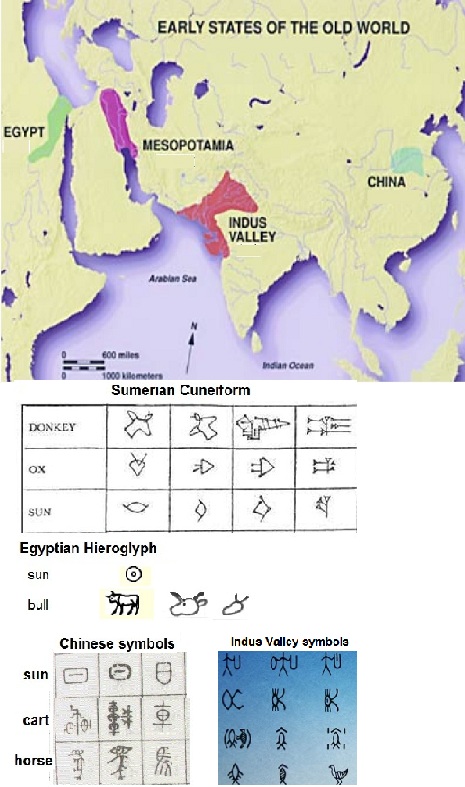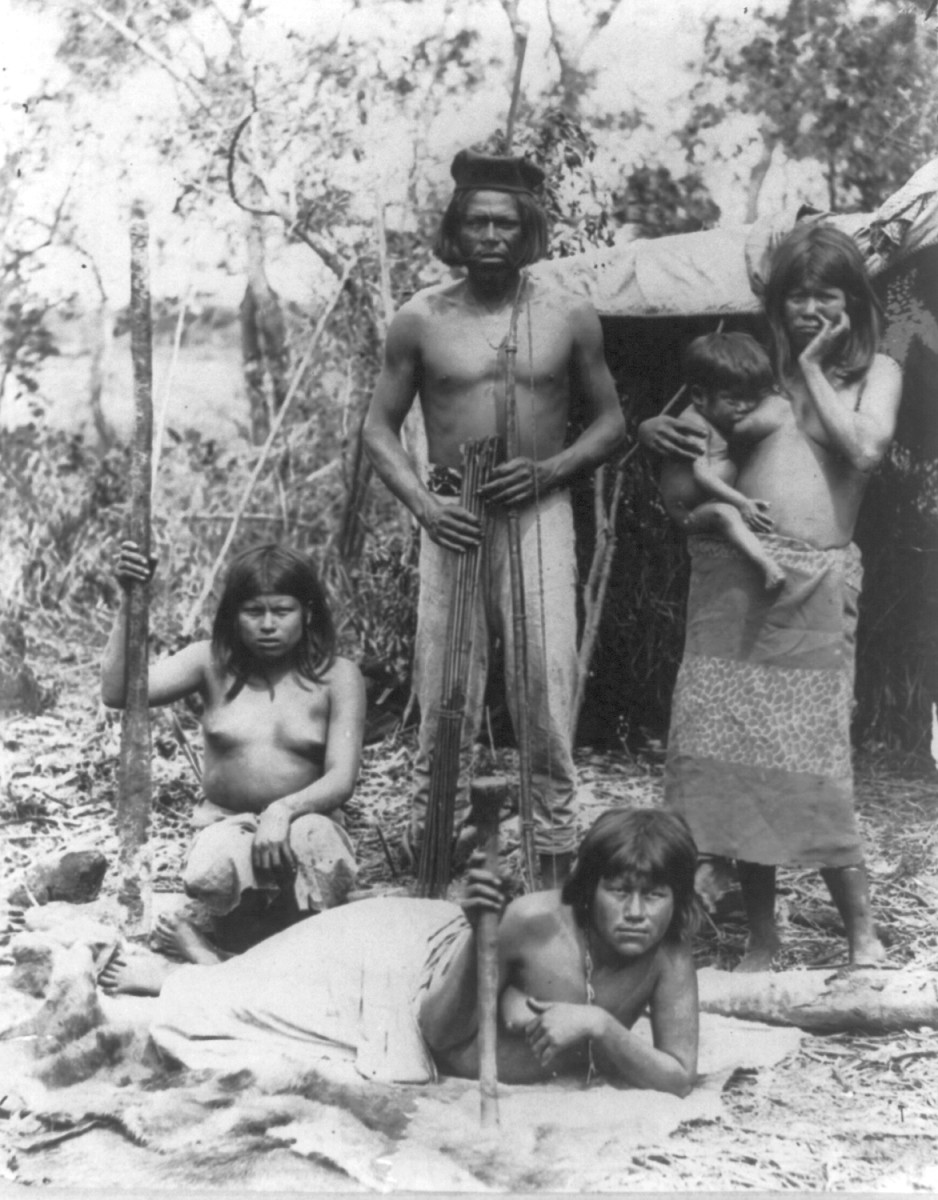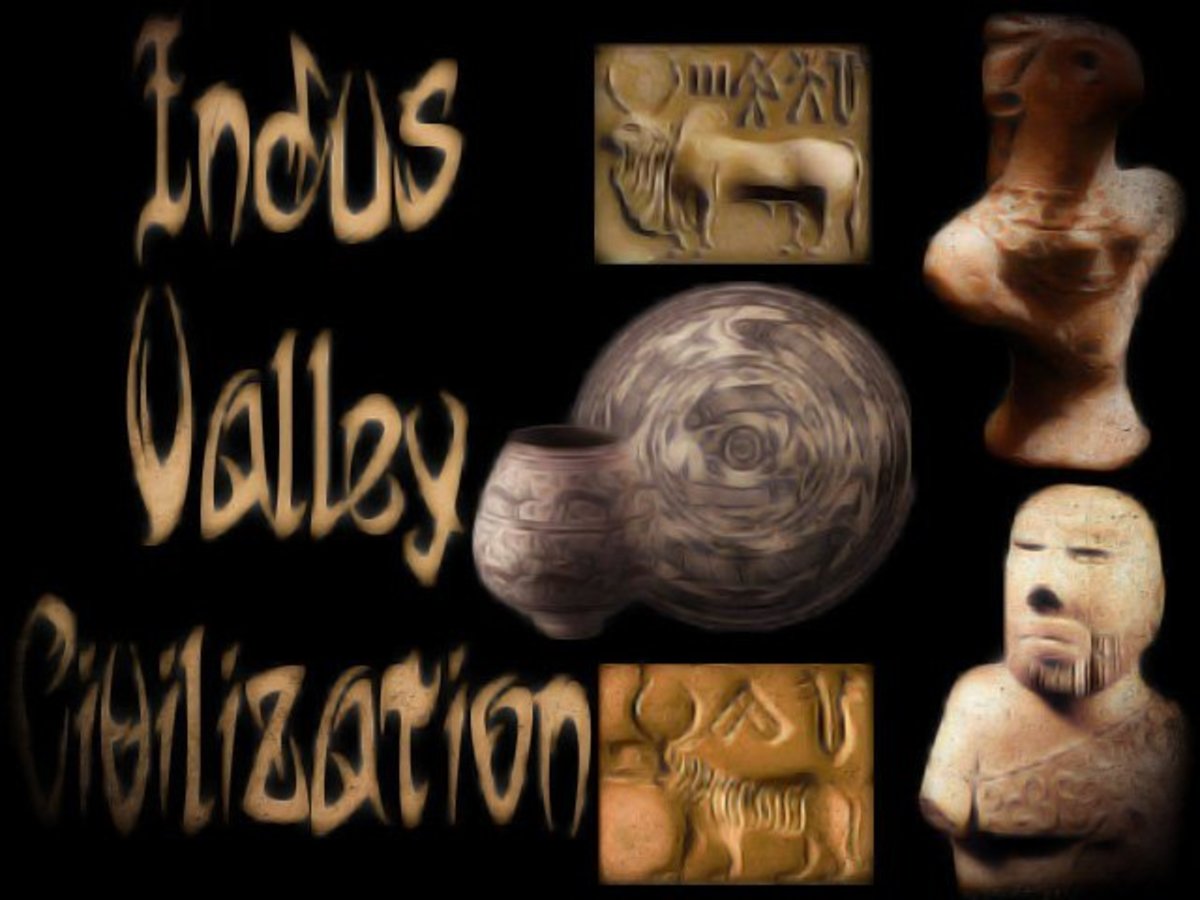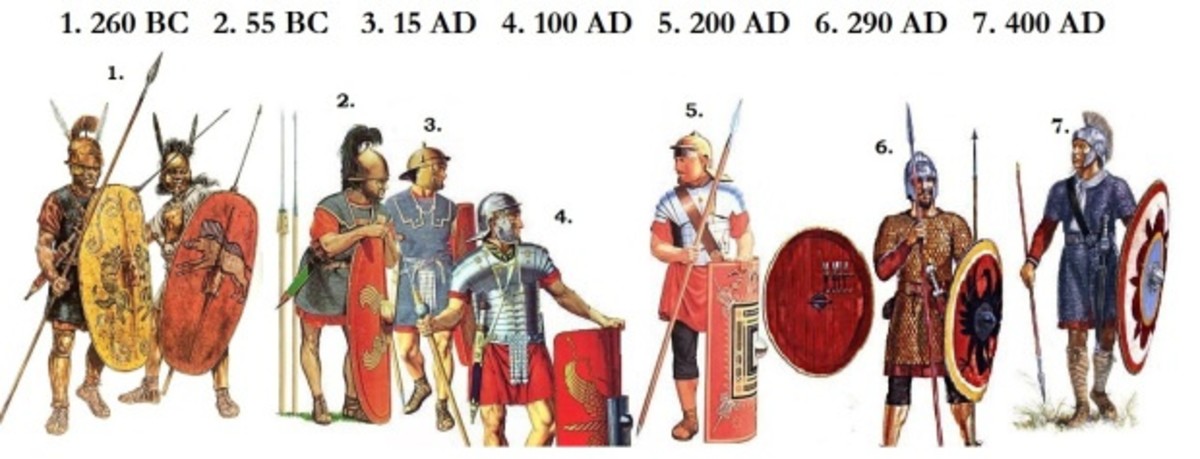Civilization At Large
The human being is the only species on Earth that is capable of building a civilization. It allows the humans to unlock the vast resources that are hidden in plain sight and enable the humans to see beyond the material world and the physical comfort. Most importantly, civilization shows the humans how to live amongst themselves and the needs to pull their collective efforts and intelligence to survive the seemingly indifferent Earth. Life began on Earth around 3.5 billion years ago. The earliest human species emerged from the long evolutionary process around 1.5 million years ago. Around 7 thousand years ago, the first ever living civilization was born and life on Earth has never been the same ever since.

The Written Language
The appearance of the written language ushered the beginning of the human civilization. As the humans found the power in numbers in surviving the harsh and unpredictable environment, an effective and recordable means of communication was gradually developed. The result was the written language which not only helped the humans to share their ideas and experiences but also ensured that those wisdoms would be available to the future generations as reference to build a bigger community and a better living condition.
1) The Sumerian created the first civilization along the Tigris and Euphrates rivers in the present Iraq. They developed the pictorial based written language called Cuneiform. Due to its limited usage, it was later replaced by the Roman alphabets.
2) The Egyptian civilization sprang up a bit later along the Nile River. They created the hieroglyphs to record major events and religious ceremonies on the stone walls and tablets. The complex picture-like writings were fully deciphered in 1799 with the discovery of the Rosetta stone.
3) The Indus Valley civilization appeared in the present day northern India several hundred years later than the Sumerian civilization. They invented a written language that still puzzled the modern day experts.
4) Around 5000 years ago, the Chinese civilization declared its existence along the lower Yellow River. Its written language was originated from drawings that bear close resemblance to objects found in the surroundings. Through constant modifications and refinements, it is still being used today though each word’s appearance and meaning are no longer recognizable to its original form.

The Education
Unlike any other animals, the human being is not born with any prior knowledge as to the survival skills in the environment. Instead, it is born with the capability to learn to survive in any environment. One of the main functions of the civilization is to provide education to the young. In the early times, the education taught the humans:
1) How to live off the environment and avoid the pitfalls,
2) The written language and the communication skills to live among the other humans.
As the civilization became more advanced and encompassed bigger population, the education needed to be more organized and elaborated to accommodate the accumulated knowledge on the workings of the natural world as well as the functions of the man-made world. Today, an average human has to spend 12 years in school to get a proper education to be an effective and responsible member of the community.

The Organization
The human civilization is built upon the past experience, knowledge, and wisdom as to how to live a better life and to look after the welfares of all the humans. As a result, one form of organization came into existence to preserve and pass on this vital information while another organization was formed to serve the needs of the population. As times marched on and the human population multiplied, there were organizations:
1) To collect taxes to fund its operations,
2) To provide military forces to defend its territories and people,
3) To build infrastructures to support the expanding commerce, etc.
Today, these diverse organizations are under the control and guidance of the government. An effective government is usually run by the elected officials to whom the rest of the population has entrusted that they will protect and serve the best interests of the whole.

The United Nations
Ever since the dawn of human civilization around 7000 years ago, there has been conflicts and fighting among humans for personal reasons, for territorial disputes, for ideological disagreements, for differences in religious faith, etc. Most recently, two world wars were fought involving many nations, resulting in the deaths of 10 of millions of people, and employing weapons of mass destruction. Realizing that the next war would only be more costly and vicious, nations from around the world came together to form a governing body called the United Nations to prevent and mediate conflicts big or small. For the first time, there is a place for nation big or small to air the grievances before resorting to drastic and violent actions. Most importantly, the United Nation makes people to embrace, appreciate, and tolerate the different customs, cultures, and races from all different parts of the Earth.

The Road Ahead
Several civilizations had been started and developed independently in isolated regions around the Earth. They all had written language derived from the likeness of the objects in the surrounding. They all saw the need to have a governing entity to oversee its citizen’s educational, judicial, and military operations. Civilization had enabled the early scattered humans from living in caves and hunting for food to the present day of a population of 7 billion working together to face and solve the challenges of survival. Every human being past and present has a hand in building this civilization just as every animated and in-animated object on this Earth had a role in the emergence of the human beings.
Life on Earth happened not by chance but by probability on a playing field that is almost 14 billion years old. The human being was the end product of an intelligent process that took 3.5 billion years to complete. The crowning achievement of the two developments is a civilization that saw the creation of language for communication and record keeping, the accumulation of knowledge about the world, the exploitation of the hidden resources, as well as the manufacturing of the weapons of mass destruction, the pollution of the environment, and the disappearance of countless living species. But more importantly, this civilization also sees the blossom of the intellectual endeavors – books, music, films, paintings, dances, etc. – that feed the insatiable hunger of the human’s spirituality. The transition from the real to the surreal, the perception from the concrete to the abstract, and the appreciation from the physical to the metaphysical will ensure the survival of the human beings on the Earth despite themselves.








